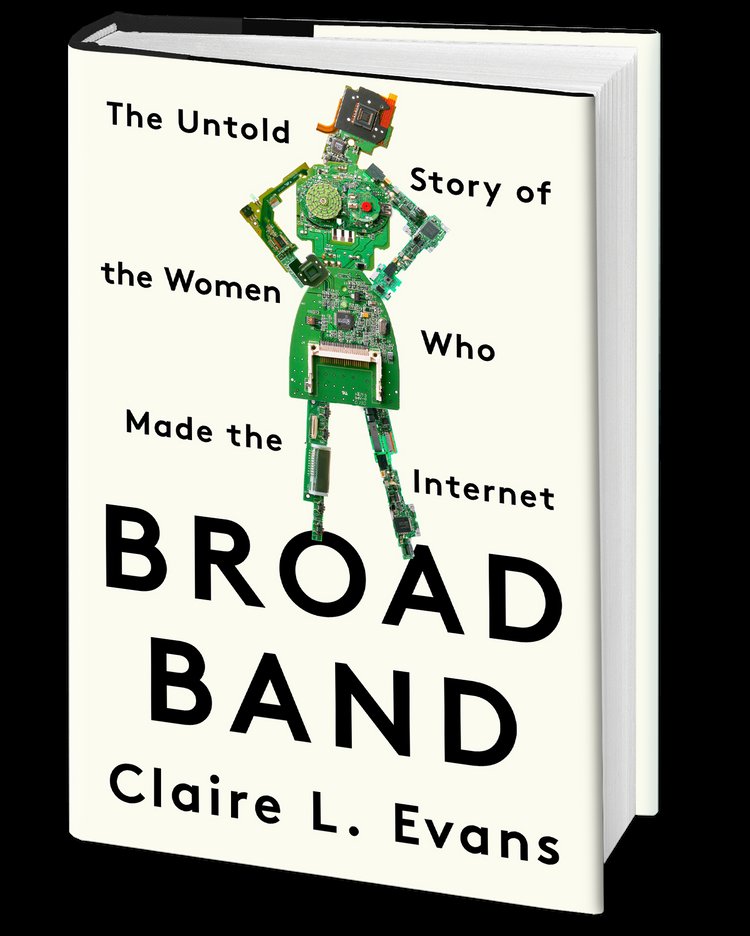2/
One of the most fascinating revelations from the Snowden documents was the story of "fourth party collection," which is when the NSA hacks the spy agency of a friendly nation to suck up all the spy data it has amassed on its own people.
https://t.co/8WZ6WJigjU
1/

2/
3/
4/
https://t.co/dlueiQsDbK
5/
6/
https://t.co/ne0Oyiri90
7/
8/
More from Cory Doctorow #BLM
I've just read one of the most lucid, wide-ranging, cross-disciplinary critiques of cryptocurrency and blockchain I've yet to encounter. 1/

It comes from David "DSHR" Rosenthal, a distinguished technologist whose past achievements including helping to develop X11 and the core technologies for Nvidia.
https://t.co/tkAMShno4k 2/
Rosenthal's critique is a transcript of a lecture he gave to Stanford's EE380 class, adapted from a December 2021 talk for an investor conference. 3/
It is a bang-up-to-date synthesis of many of the critical writings on the subject, glued together with Rosenthal's own deep technical expertise. He calls it "Can We Mitigate Cryptocurrencies' Externalities?"
The presence of "externalities" in Rosenthal's title is key. 4/
Rosenthal identifies blockchainism's core ideology as emerging from "the libertarian culture of Silicon Valley and the cypherpunks," and states that "libertarianism's attraction is based on ignoring externalities."
This is an important critique of libertarianism. 5/

It comes from David "DSHR" Rosenthal, a distinguished technologist whose past achievements including helping to develop X11 and the core technologies for Nvidia.
https://t.co/tkAMShno4k 2/
Rosenthal's critique is a transcript of a lecture he gave to Stanford's EE380 class, adapted from a December 2021 talk for an investor conference. 3/
It is a bang-up-to-date synthesis of many of the critical writings on the subject, glued together with Rosenthal's own deep technical expertise. He calls it "Can We Mitigate Cryptocurrencies' Externalities?"
The presence of "externalities" in Rosenthal's title is key. 4/
Rosenthal identifies blockchainism's core ideology as emerging from "the libertarian culture of Silicon Valley and the cypherpunks," and states that "libertarianism's attraction is based on ignoring externalities."
This is an important critique of libertarianism. 5/
More from Society
Hong Kong protester equipment list:
- respirator (dubbed "pig snouts" in Cantonese)
- helmet
- eye mask
- heat-proof gloves
- water bottle
- cling wrap
- saline
- traffic cones
- pots and pans
Demonstrators find creative methods to battle police tear gas
https://t.co/kPeUTu9iFh

AFP graphic charting Hong Kong's main socio-economic indicators and opinion polls on press freedom and government performance
@AFPgraphics

AFP graphic showing the main equipment used by hardcore pro-democracy protesters in Hong Kong to battle police tear gas, pepper spray and rubber bullets
@AFPgraphics

Frontline first aid.
Nurses, doctors, medical students and ordinary citizens with first aid training have clamoured to join a small volunteer corps helping treat people involved in the Hong Kong protests
@AFP's Yan Zhao reports: https://t.co/uDfYkMeZJf
📸 Anthony Wallace

Pro-democracy activists kick off three days of rallies at Hong Kong airport.
Protesters hope to win international support from arriving passengers. The last demonstration at the airport on July 26 passed off peacefully without causing flight disruptions
https://t.co/jmVqtEd4M2

- respirator (dubbed "pig snouts" in Cantonese)
- helmet
- eye mask
- heat-proof gloves
- water bottle
- cling wrap
- saline
- traffic cones
- pots and pans
Demonstrators find creative methods to battle police tear gas
https://t.co/kPeUTu9iFh

AFP graphic charting Hong Kong's main socio-economic indicators and opinion polls on press freedom and government performance
@AFPgraphics

AFP graphic showing the main equipment used by hardcore pro-democracy protesters in Hong Kong to battle police tear gas, pepper spray and rubber bullets
@AFPgraphics

Frontline first aid.
Nurses, doctors, medical students and ordinary citizens with first aid training have clamoured to join a small volunteer corps helping treat people involved in the Hong Kong protests
@AFP's Yan Zhao reports: https://t.co/uDfYkMeZJf
📸 Anthony Wallace

Pro-democracy activists kick off three days of rallies at Hong Kong airport.
Protesters hope to win international support from arriving passengers. The last demonstration at the airport on July 26 passed off peacefully without causing flight disruptions
https://t.co/jmVqtEd4M2

You May Also Like
THREAD: 12 Things Everyone Should Know About IQ
1. IQ is one of the most heritable psychological traits – that is, individual differences in IQ are strongly associated with individual differences in genes (at least in fairly typical modern environments). https://t.co/3XxzW9bxLE

2. The heritability of IQ *increases* from childhood to adulthood. Meanwhile, the effect of the shared environment largely fades away. In other words, when it comes to IQ, nature becomes more important as we get older, nurture less. https://t.co/UqtS1lpw3n

3. IQ scores have been increasing for the last century or so, a phenomenon known as the Flynn effect. https://t.co/sCZvCst3hw (N ≈ 4 million)
(Note that the Flynn effect shows that IQ isn't 100% genetic; it doesn't show that it's 100% environmental.)

4. IQ predicts many important real world outcomes.
For example, though far from perfect, IQ is the single-best predictor of job performance we have – much better than Emotional Intelligence, the Big Five, Grit, etc. https://t.co/rKUgKDAAVx https://t.co/DWbVI8QSU3

5. Higher IQ is associated with a lower risk of death from most causes, including cardiovascular disease, respiratory disease, most forms of cancer, homicide, suicide, and accident. https://t.co/PJjGNyeQRA (N = 728,160)

1. IQ is one of the most heritable psychological traits – that is, individual differences in IQ are strongly associated with individual differences in genes (at least in fairly typical modern environments). https://t.co/3XxzW9bxLE

2. The heritability of IQ *increases* from childhood to adulthood. Meanwhile, the effect of the shared environment largely fades away. In other words, when it comes to IQ, nature becomes more important as we get older, nurture less. https://t.co/UqtS1lpw3n

3. IQ scores have been increasing for the last century or so, a phenomenon known as the Flynn effect. https://t.co/sCZvCst3hw (N ≈ 4 million)
(Note that the Flynn effect shows that IQ isn't 100% genetic; it doesn't show that it's 100% environmental.)

4. IQ predicts many important real world outcomes.
For example, though far from perfect, IQ is the single-best predictor of job performance we have – much better than Emotional Intelligence, the Big Five, Grit, etc. https://t.co/rKUgKDAAVx https://t.co/DWbVI8QSU3

5. Higher IQ is associated with a lower risk of death from most causes, including cardiovascular disease, respiratory disease, most forms of cancer, homicide, suicide, and accident. https://t.co/PJjGNyeQRA (N = 728,160)
























